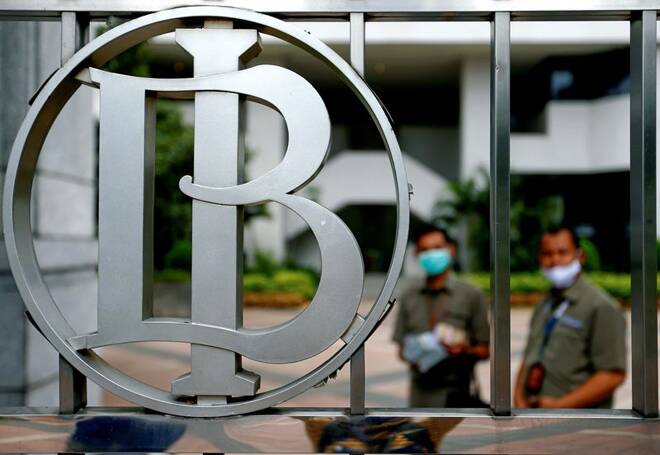Advertisement
Advertisement
Bank Indonesia to hold rates steady at 5.75% through this year – Reuters Poll
By:
By Anant Chandak BENGALURU (Reuters) - Bank Indonesia will hold its key interest rate at 5.75% on Thursday and for the rest of this year, suggesting its longest tightening cycle on record is almost certainly over despite inflation remaining high, a Reuters poll of economists forecast.
By Anant Chandak
BENGALURU (Reuters) – Bank Indonesia will hold its key interest rate at 5.75% on Thursday and for the rest of this year, suggesting its current tightening cycle is almost certainly over despite inflation remaining high, a Reuters poll of economists forecast.
After six consecutive hikes since August 2022, the central bank paused last month and stressed the current level should be sufficient to guide inflation back to its 2%-4% target range.
Inflation in Southeast Asia’s largest economy hit a seven-year high of 5.95% in September, driven by volatile food and energy prices, but has since slipped to 5.47% in February.
BI Governor Perry Warjiyo said core inflation, which is stripped of volatile components, was easing faster than anticipated after peaking in December so there was no need for more hikes. He said the Bank aimed to get headline inflation within the target band by end-2023.
All 30 economists in the March 8-13 Reuters poll expected the central bank to hold its benchmark seven-day reverse repurchase rate at 5.75% at its meeting on Thursday.
Median forecasts in the poll showed the policy rate would remain at that level for the rest of 2023, and only two economists surveyed expected a rate cut this year. Three expected an increase to 6.00% next quarter.
“BI recently declared victory over inflation with Governor Perry Warjiyo indicating that he need not hike rates any more this year,” noted Nicholas Mapa, economist at ING.
“Dovish commentary from Warjiyo clearly shows that BI is now shifting its focus to bolstering growth to help offset the challenging global landscape.”
That stance differs from many major central banks and some neighbouring Asian countries such as the Philippines, Thailand, and India that are expected to continue raising interest rates.
However, some economists cautioned about the risk of widening interest rate differentials, with the U.S. Federal Reserve likely to raise rates further, as well as a possible flare-up in domestic prices due to the upcoming Ramadan festival when there is more shopping and consumption in general.
“While we believe that BI might have come to the end of its rate hike cycle, there is now a great deal of uncertainty as to its future course of action,” noted Kunal Kundu, economist at Societe Generale.
“A rather hawkish statement by Fed Chair Powell suggesting rates moving higher and faster and remaining elevated for longer raises the possibility of the bank eventually deciding to go further. There is a possibility of BI going further and higher for longer.”
(This story has been corrected to fix the tightening cycle milestone in paragraph 1)
(Reporting by Anant Chandak; Polling by Devayani Sathyan and Veronica Khongwir; Editing by Jonathan Cable and Alex Richardson)
About the Author
Reuterscontributor
Reuters, the news and media division of Thomson Reuters, is the world’s largest international multimedia news provider reaching more than one billion people every day. Reuters provides trusted business, financial, national, and international news to professionals via Thomson Reuters desktops, the world's media organizations, and directly to consumers at Reuters.com and via Reuters TV. Learn more about Thomson Reuters products:
Advertisement
